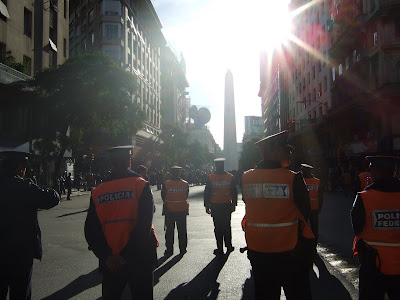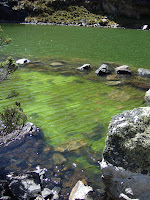Back in October, I visited Caracas, Venezuela. On Carlos's recommendation, I went to the children's museum.
Though it was almost deserted of visitors, the museum was impressive. Not only was it comprehensive (it covered geology to biology to space exploration to...), the exhibits were educational and interesting and there were multiple guides on hand to demonstrate experiments and answer questions.

Because Carlos is working on building a museum in Carabayllo, we decided to visit the children's museum in Buenos Aires for ideas. We were expecting something similar to, if not better than, the museum in Caracas.
Our first clue should have been that the museum was located in a mall. Albeit it was inside the Abasto. The Abasto is a magnificent building that used to be a central market. It is located blocks away from Carlos Gardél's home and when Albert Einstein visited Buenos Aires, he made a point to visit the Abasto. Sadly it fell into disrepair and disuse and in the late-90s it was renovated and turned into the largest shopping mall in Buenos Aires.
At first, we were cheered on by the happy, vibrant colors. But quickly we realized we had been ensnared into one big advertising trap. For example, there was a child-sized MacDonald's where little Ronaldo can flip plastic burgers and serve up plastic french fries. There were exhibits by Coto (a local supermarket chain), Banco Hipotecario (local bank), Nestle, and Colgate among others.



The only remotely educational exhibit was a bit of a blooper for me. I saw a rounded white bowl and a blue ladder. I thought it was a ship. When I climbed up and saw a slide, I got excited and slid down the tube. On the way down I was eager to climb the ladder and do it again.
To my horror, when I reached bottom there was no way out. I was obliged to crawl through a plastic tube for some minutes before florescent lights shined sweet cool rays on me once more. It turned out, I had flushed myself down a gigantic toilet bowl, crawled through sewer pipes, and washed out into a treatment tank: I got to experience the life-cycle of poop. Yay! (I think.)


 These are men doing restoration work in Chan Chan, a tremendous complex of palaces built by the Chimu.
These are men doing restoration work in Chan Chan, a tremendous complex of palaces built by the Chimu.

























